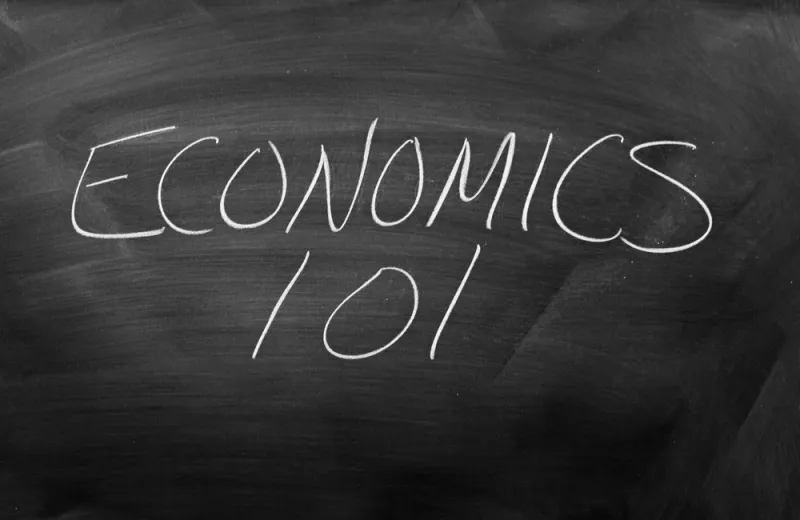Whether you are just getting started in your career or are a seasoned professional aiming for a C-suite job, a master’s degree in applied economics offers important advantages. The degree program is designed to develop “T-shaped professionals:” those professionals with sophisticated technical skills and soft skills, both of which are fundamental for success in solving today’s complex problems and working across industry sectors, organizational environments, and geographic contexts.
Employers have cited the need for more T-shaped professionals. In a recent Financial Times article, top employers around the globe identified and discussed the most and least important skills they seek as part of their responses to the 2018 MBA Skills Gap survey. Survey results show that soft skills are the most in demand by leading employers; however, the article continues to say that without demonstrated technical skills, job candidates are not even scoring initial interviews.
How can professionals determine which graduate course of study best prepares them to meet these divergent skills gaps? Let’s start with one of the most frequently asked questions: What exactly is the relationship between the MBA and the Master’s in Applied Economics?
Applied Economics vs. MBA
“I think these two programs are perfect complements for one another,” said Michael Hanson, a student in the Boston College M.S. in Applied Economics degree program and a graduate of Boston College’s dual MBA and MSF degree programs. “I think of the MBA as where you learn core business functional skills and broad skills in leadership, negotiation, and management. The M.S. in Applied Economics degree program, on the other hand, is where you learn how to approach problem-solving, how to make data-driven decisions, and how to simplify what the evidence is telling you so that it makes sense for an organization to use as the basis of strategy.”
Ed Ryan, a seasoned professional of more than 40 years, agrees. “The MBA gives you what you need to get started in finance, marketing, and operations. But, there is no question that the world is moving toward artificial intelligence and big data,” said Ryan. “The Master’s in Applied Economics program is at that intersection between what the market needs and the skills its graduates learn. We need to be sure the business world understands what these graduates can offer.”
How does the Master’s in Applied Economics degree program uniquely prepare its graduates to be in-demand T-shaped professionals?
Applied Economics: Analytical Approaches
Applied Economics students develop a toolkit of analytical approaches that leverage what they already have learned in theoretical microeconomics, macroeconomics, and statistics. This means that before any time-consuming work begins, graduates of an Applied Economics program can review the problem to be solved from several different angles to determine the best approach. Should this problem be addressed from the top down, for example, or from the bottom up? What should be the plan for getting to the most meaningful result? Students in the program learn to think through the problem and design the process versus just diving in.
In addition to learning how to think like an economist and a consultant, students in the program have the opportunity to learn specific technical skills that are in high demand, such as forecasting and predictive analytics, transfer pricing, measuring business cycles, and more.
Applied Economics: Big Data and Coding Techniques
As mentioned in the Financial Times article, finding professionals who can work with big data is one of the most difficult searches for leading employers. In the Boston College M.S. in Applied Economics program, students have the opportunity to work with real-world data sets that are often unstructured, complex, and require some knowledge of coding to manage effectively. Virtually every industry – and many nonprofits and government agencies – continue to move further into data-driven strategic models. Knowing how to work with this kind of data in a time- and cost-effective way can give these professionals an edge in the job market.
Applied Economics: Team Collaboration Skills
The Boston College M.S. in Applied Economics degree program brings together a diverse group of students in each of its courses. Less than half of the student population is from the U.S. International students come from across the globe and bring a wealth of diversity in backgrounds and cultures, in styles and approaches to problem-solving, and in professional interests and connections. In addition, the program has a mix of students who are early in their careers looking for the perfect job, and students who are seasoned professionals seeking new skills and advancement to the next level. Courses in the program often require team-based projects and deliverables so that graduates of the program have deep experience in communicating and collaborating with diverse team members and in having to accommodate and find leverage in differences around skills, schedules, and styles.
Applied Economics: Communication and Presentation Skills
Finally, the Boston College M.S. in Applied Economics degree program requires students to deliver polished presentations on the analytical work they are doing for course projects. Faculty act as presentation coaches for the students so that each student receives extensive feedback on areas for improvement. Students are coached on making sure they have boiled down their findings to simple language and concepts so that anyone can follow the presentation. Students are also asked to deliver strategic insights from their work so that leaders can use their findings in order to make decisions.
